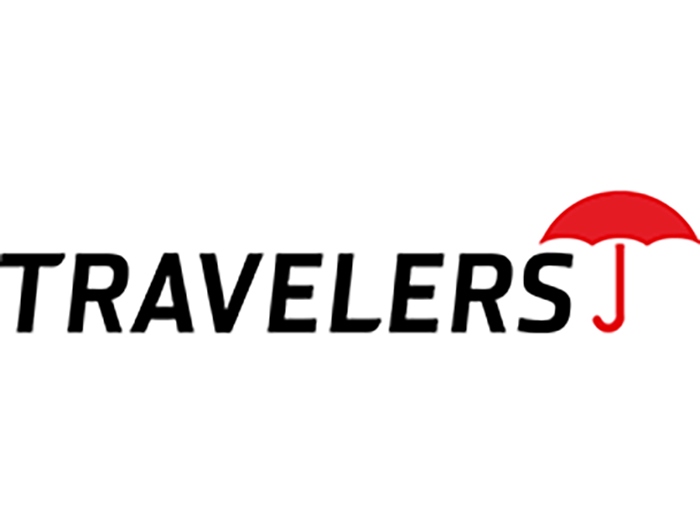Sponsored Content by CNA
Heading Abroad? Know the Risks

It used to be that international business travel was a glamorous perk reserved for Fortune 500 senior executives who globetrotted the world securing sales and distribution deals. Think first class flights, high-end restaurants and luxury hotels.
But oh have times changed!
As the global economy becomes more interconnected, many more companies and their employees are conducting business around the world in search of cost-effective suppliers and new sales markets.
“There are so many industries that used to be domestic U.S. focused but have since grown and expanded to be global. We’re seeing consultants, law firms, construction companies, even hospitals looking for opportunities outside the U.S.,” said Kathleen Ellis, Senior Vice President, International, at CNA. “While you can certainly accomplish a lot through conference calls, there is still a need for face-to-face meetings.”
Despite the rising frequency of international business travel, many companies underestimate the safety and liability risks facing their employees abroad, and are unknowingly under-insured.
The Mundane is Riskier than the Dramatic

Kathleen Ellis, Senior Vice President, International
Terrorism and crime usually get the most attention when it comes to global travel risk, but mundane safety issues are the more common causes of claims.
Slips and falls, for example, are much more likely when an employee is fatigued from a seven-hour flight. All it takes is a momentary lapse of attention to take a stray step into the way of an oncoming cyclist. Simple mistakes like misplacing a passport or a vital prescription can also call for immediate assistance and delay travel plans. Unpredictable illnesses likewise may require medical care and an extended stay.
“International business travel is expensive not just in terms of cost, but in terms of time and energy. There’s the stress of spending hours cramped in a plane, time-zone adjustments, sleep deprivation and still needing to be prepared to do business,” Ellis said. “That stress is compounded if you go to a country where you don’t speak the language, can’t read street signs or can’t communicate that you need help.”
These everyday woes are more frequent claim drivers than outright violence or crime.
“Sometimes people are not aware of all the aspects of international travel that they should anticipate or try to control,” said Chris Brutzman, Underwriting Director, CNA. “As a result, companies rely on domestic coverage that is just insufficient.”
The Problem of Incomplete Coverage
Too often, Ellis and Brutzman see middle-market companies rely on their domestic workers’ compensation coverage to cover incidental foreign travel accidents.
Workers’ compensation often includes some coverage for injuries incurred abroad, but the rules will vary depending on which state the coverage is written.
“Domestic workers’ comp may not apply 24/7, meaning it may not cover incidents that occur during ‘off work’ hours, and may not pay for emergency services like medical care,” Brutzman said.
And it would not respond to incidents where injury isn’t involved.
Becoming ill, getting robbed, losing a passport or anything else that requires immediate assistance and delays travel would be uncovered. Companies may procure trip travel insurance to cover expenses related to delay of travel, but even that may not be adequate for the full exposure.
Problems can also arise if a company purchases an international travel package from a different carrier than is used domestically.
“There’s almost guaranteed to be some finger-pointing if you have different insurers providing your domestic and international coverages,” Brutzman said. The policy language may not be consistent. This means the policies won’t “connect” in the right spots, leading to both gaps and overlaps in coverage.
The Coverage Solution
A comprehensive travel insurance package is more than workers’ comp. It should also include property policies to cover personal items like laptops; general liability and excess auto policies to cover the risks associated with renting a car; and business travel accident to fill in the gaps left by domestic workers’ compensation.
International policies should complement and work in sync with local policies to create streamlined and continuous coverage that meets the United States’ higher insurance standards.
“Take auto liability as an example. The U.S. requires pretty high limits as the norm, but we’ve seen some countries with limits as low as $5,000 in liability cover,” Brutzman said. “We arrange locally admitted policies to ensure compliance with local laws and regulations, but the goal of many international policies is to bring the local coverage up to a U.S. standard.”
Middle-market companies are often unaware of the liability exposure they take on without a suite of international policies. In particular, excess auto coverage is crucial for any employee renting a car.
“It has happened where someone rents a car abroad and causes an accident that results in injury,” Ellis said. “The liability will ultimately fall back to the employer.”
Companies may also be unaware of where exactly their domestic workers’ compensation coverage ends.
If an injury happens during an employee’s personal time, domestic workers’ compensation coverage would treat it as non-work related, even though it occurred in the course of a business trip. And it certainly would not respond to injuries suffered by a non-employee.
Don’t Overlook “Bleisure”
Business travel accident coverage acts a supplement to workers’ compensation, extending coverage to spouses or other travel companions around the clock. In other words, it covers ‘bleisure’ travel.
“The business travel accident supplement is referred to as ‘bleisure’ coverage because it encompasses both business and leisure travel,” Ellis said. “If you bring your family on a business trip and then extend it a little longer for vacation, this policy would provide coverage for everyone for the length of the trip.”
Ellis sees “bleisure” as a rising trend. More executives are opting to take advantage of travel opportunities by bringing along a spouse or friend and tacking on some vacation time. From their employers’ perspective, providing coverage for those traveling companions works for everyone’s benefit.
With the increasing cost of travel, businesses choose their trips and travelers carefully. Typically, business travelers are key executives. They are the decision-makers who need to seal the deal and make it back to the home office safely. It’s in a company’s best interest to provide full coverage for those executives even while they are on vacation time. The same goes for their loved ones. Though not an employee, any injury or mishap suffered by a key executive’s spouse will certainly impact the company.
Support as Critical as Coverage
Coverage, though, is the last thing on employees’ minds if they or a family member gets sick or hurt. Insurance is only meaningful when coupled with the right services. Travelers will need local help immediately if they are robbed, lose something or get sick. And due to time differences, these incidents tend to happen while the folks at home are sound asleep.
“A few years ago, for example, we sent a helicopter to airlift an injured insured out of the Amazon,” Brutzman said. “That’s an extreme scenario, but you can never be too prepared. The geopolitical environment is always changing, as are foreign laws and regulations, so this is not a static risk.”
To make sure they have all necessary coverage and services in place, risk managers should look to carriers with experience and developed expertise in the realm of global travel.
“Lots of carriers offer a comprehensive travel insurance package, but we are unique in how we execute it. We want to be problem-solvers who work with clients and brokers in a meaningful way,” Ellis said.
CNA’s companion services provide resources through every leg of a traveler’s journey, from pre-trip briefings and safety recommendations to emergency medical care if needed, and direction if a passport is lost or stolen. Insureds can access these services anywhere in the world, 24 hours a day, every day of the year.
To learn more about CNA’s international travel insurance, visit https://www.cna.com.
One or more of the CNA companies provide the products and/or services described. The information is intended to present a general overview for illustrative purposes only. It is not intended to constitute a binding contract. Please remember that only the relevant insurance policy can provide the actual terms, coverages, amounts, conditions and exclusions for an insured. All products and services may not be available in all states and may be subject to change without notice. “CNA” is a service mark registered by CNA Financial Corporation with the United States Patent and Trademark Office. Certain CNA Financial Corporation subsidiaries use the “CNA” service mark in connection with insurance underwriting and claims activities. Copyright © 2017 CNA. All rights reserved.
This article was produced by the R&I Brand Studio, a unit of the advertising department of Risk & Insurance, in collaboration with CNA. The editorial staff of Risk & Insurance had no role in its preparation.










